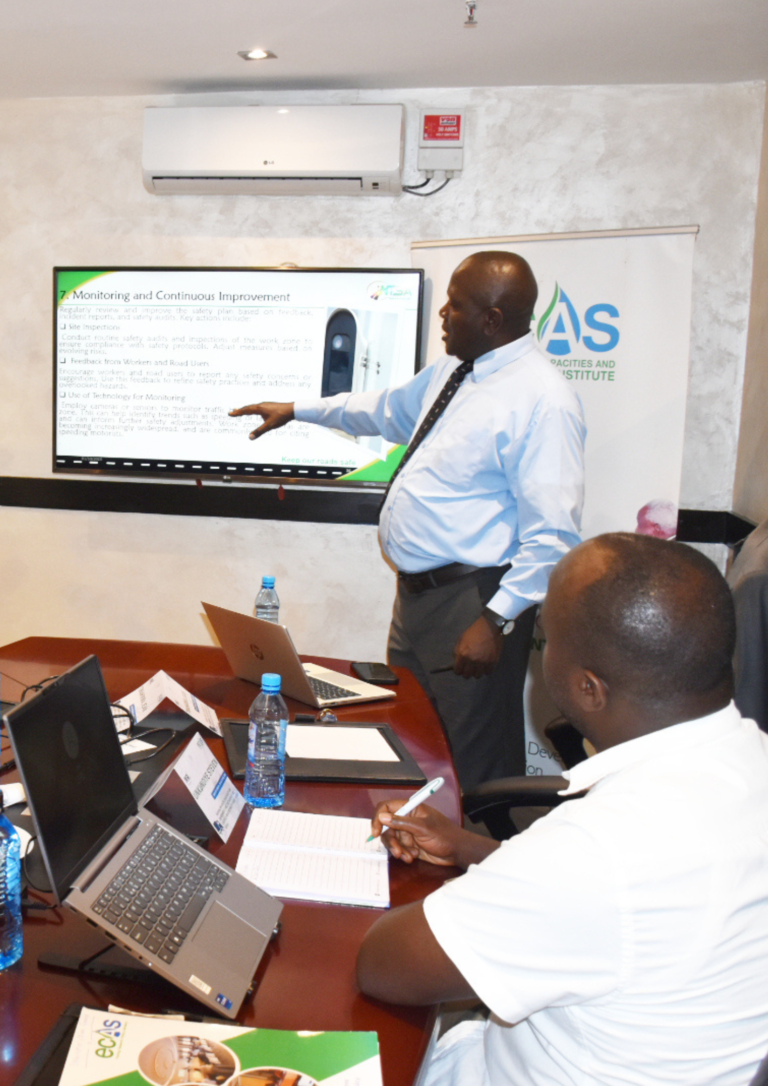
CONCEPT NOTE
INTERNATIONAL TRAINING ON MANAGEMENT STRATEGIES AND INSTITUTIONAL DEVELOPMENT
COURSE BACKGROUND
Institutions and organizations operate in an increasingly dynamic and complex environment, requiring effective management strategies and institutional development to remain competitive, resilient, and sustainable. This course is designed to provide participants with in-depth knowledge and practical skills to develop, implement, and refine management strategies that enhance institutional efficiency, governance, and overall performance.
The course explores critical aspects such as leadership, strategic planning, governance, change management, institutional capacity-building, and stakeholder engagement. Participants will gain insights into best practices for fostering innovation, strengthening organizational culture, and implementing policies that drive institutional growth. By addressing challenges such as organizational restructuring, risk management, and performance improvement, the course equips professionals with the necessary tools to navigate institutional development successfully.
This training program is structured to blend theoretical insights with real-world applications, ensuring participants can translate learned concepts into tangible results within their respective institutions. Whether working in public administration, private sector leadership, or nonprofit organizations, this course provides essential frameworks for institutional excellence.
COURSE OBJECTIVES OF THE TRAINING
This course aims to achieve the following objectives:
- Equip participants with the foundational principles of management strategies and institutional development.
- Enhance leadership and governance capabilities for improved organizational performance.
- Develop strategic planning skills to align institutional objectives with long-term goals.
- Strengthen institutional capacity through innovative approaches to change management.
- Provide tools for performance measurement and accountability in organizations.
- Address key challenges in institutional sustainability, resource mobilization, and stakeholder engagement.
- Foster knowledge on risk management, crisis preparedness, and institutional resilience.
- Promote best practices in corporate governance, ethics, and institutional policy-making
WHAT YOU WILL LEARN
Throughout this course, participants will gain valuable insights and hands-on experience in the following areas:
- Fundamental principles of strategic management and institutional development.
- Leadership approaches for fostering high-performing organizations.
- Governance frameworks, ethical decision-making, and accountability measures.
- Change management methodologies for organizational transformation.
- Institutional risk assessment, crisis management, and resilience-building strategies.
- Stakeholder engagement, public-private partnerships, and networking for institutional growth.
- Performance management systems and organizational excellence frameworks.
- Sustainable institutional development aligned with global best practices.
DURATION AND PROGRAM
TARGET PARTICIPANTS
Senior executives, policymakers, institutional leaders, governance officers, project managers, human resource professionals, and organizational development specialists who are responsible for driving institutional reforms, improving governance structures, and enhancing organizational effectiveness. This course is also suitable for professionals working in public administration, corporate management, nonprofit organizations, and international development agencies who seek to strengthen institutional capacity and strategic leadership. Additionally, individuals responsible for strategic planning, policy development, organizational change management, and performance improvement will greatly benefit from the insights and practical strategies covered in this program. The course is designed to support those leading transformation efforts, ensuring sustainability, and fostering a culture of innovation and resilience within their organizations.
TRAINING STYLE
This course employs a dynamic and interactive learning approach, combining expert-led lectures, real-world case studies, and hands-on workshops. Participants will engage in group discussions, peer learning, and knowledge-sharing sessions to foster collaboration and diverse perspectives. Practical exercises such as role-playing scenarios, simulations, and problem-solving activities will enhance the application of concepts in real-life situations. The training also incorporates self-assessment tools, leadership coaching, and best-practice methodologies to help participants develop effective strategies for institutional development and governance. Additionally, interactive panel discussions with industry experts, structured feedback sessions, and guided reflection exercises will ensure participants gain valuable insights and actionable skills to implement within their organizations.
TRAINING MODULES
| No | Module | Details | |
| 1. | Foundations of Institutional Development and Strategic Management |
This module introduces the key principles and theories that define institutional development and strategic management. Participants will gain insights into how organizations evolve, adapt, and implement strategies to achieve long-term sustainability.
|
|
| 2. | Leadership, Governance, and Performance Management |
Strong leadership and governance are the backbone of institutional success. This module explores best practices for organizational leadership, ethical governance, and performance measurement to enhance institutional effectiveness.
|
|
| 3. |
Change Management and Organizational Transformation |
Change is inevitable in institutional development. This module equips participants with the skills and knowledge to manage change effectively and transform organizations in response to emerging challenges.
|
|
| 4. | Risk Management and Institutional Resilience |
Institutions must prepare for potential risks and disruptions. This module explores key risk management strategies and contingency planning techniques to enhance institutional resilience.
|
|
|
5.
|
Strategic Partnerships and Sustainable Institutional Growth |
Institutions thrive through collaboration, partnerships, and sustainable development strategies. This module examines how institutions can leverage networks and resources for long-term success.
|
|
9. GENERAL NOTES
- Training manuals and additional reference materials are provided to the participants.
- Upon successful completion of this course, participants will be issued a certificate.
- We can also do this as a tailor-made course to meet organization-wide needs. Contact us to find out more: info@ecasiafrica.org.
- Payment should be sent to our bank account before the start of training, and proof of payment sent to: info@ecasiafrica.org.
ABOUT ECAS INSTITUTE
The ECAS Institute designs and delivers independent and targeted training, research, and consulting services. Our work focuses on climate change and resilience building, carbon markets, renewable energy, nature-based solutions, biodiversity conservation, agriculture, and food systems. We are located in Nairobi, Kenya, and work across the African region. We have implemented training and research assignments in Kenya, Tanzania, Uganda, South Sudan, Somalia, Malawi, Rwanda, Congo, and South Africa. Globally, we have supported our partners from the UK, Denmark, Italy, Sweden, Germany, and the USA.
